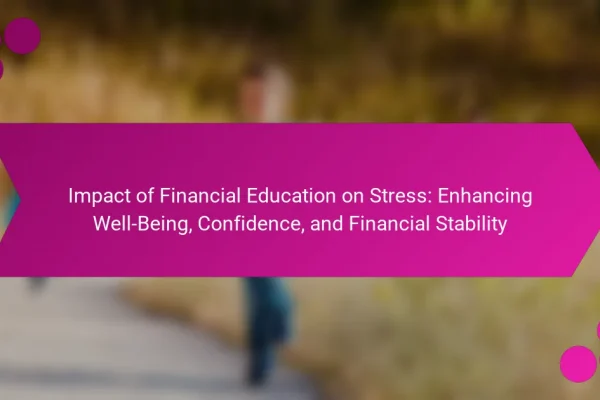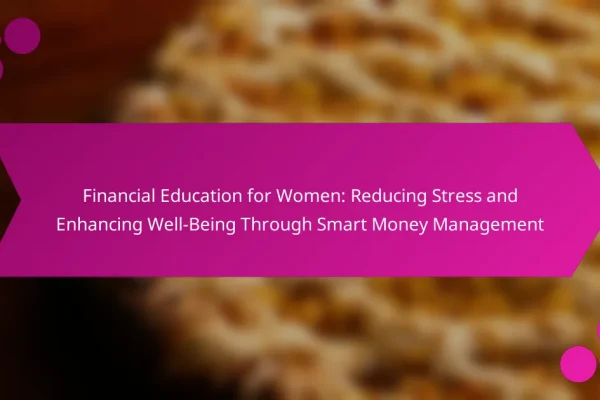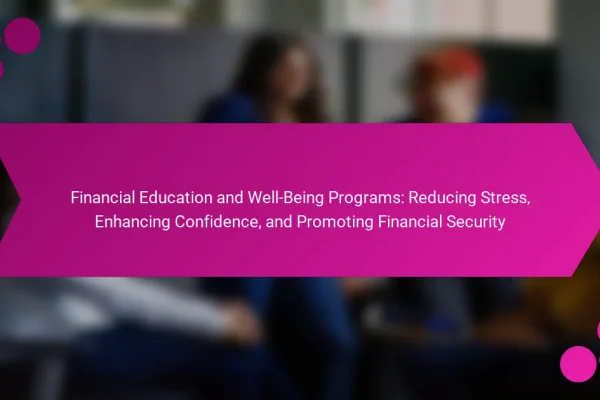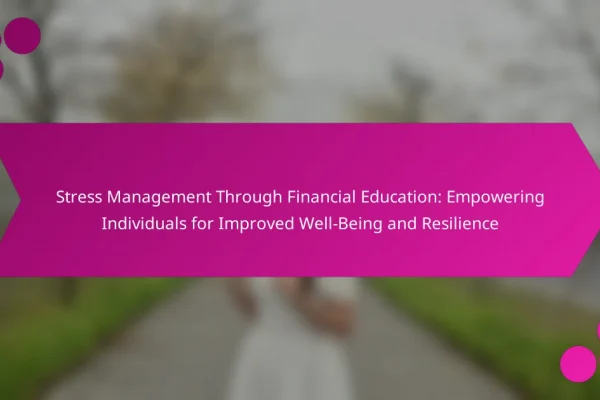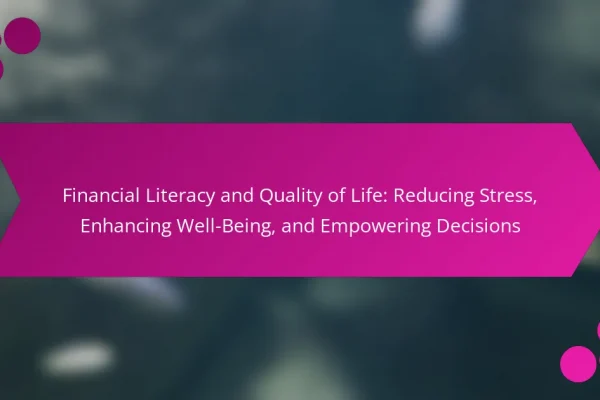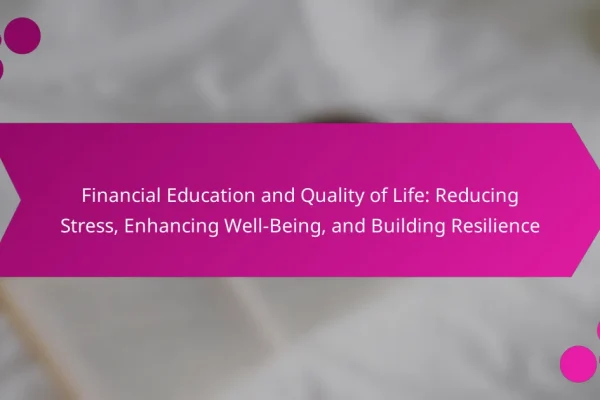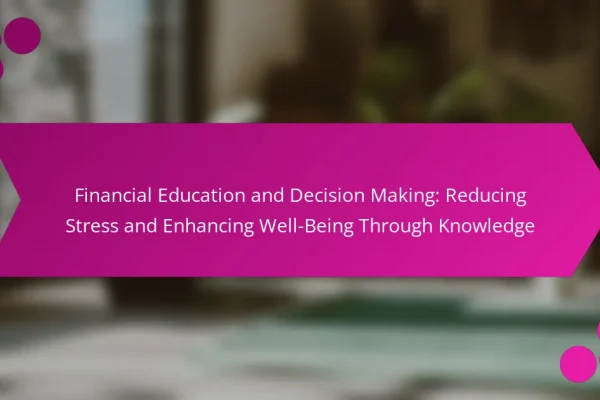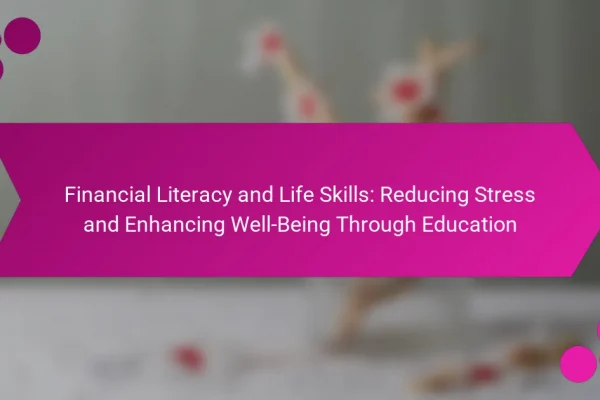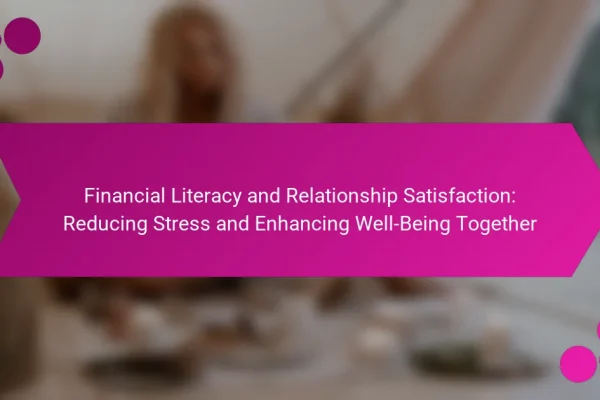
Financial Literacy and Relationship Satisfaction: Reducing Stress and Enhancing Well-Being Together
Financial literacy plays a crucial role in enhancing relationship satisfaction by mitigating financial stress and fostering effective communication. Couples with strong financial knowledge experience fewer money-related conflicts, which contributes to improved emotional well-being. By promoting transparency and shared financial goals, financial education builds trust and collaboration, laying the groundwork for lasting relationship stability. How does…
